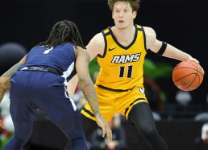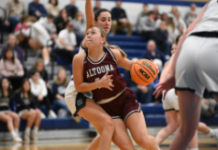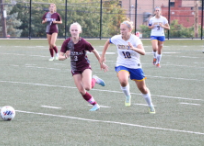A Supreme Court ruling that went against the NCAA could open the door to schools using unlimited benefits tied to education to recruit top athletes.
The NCAA’s loss in a 9-0 decision will not directly lead to play-for-pay in college athletics, but it did clear a path for future legal challenges that could be even more impactful.
Here’s what to know:
THE CASE
The original lawsuit brought by former West Virginia running back Shawne Alston challenged the NCAA’s right to cap compensation to Division I football and basketball players at the value of a scholarship.
The lower court’s decision went against the NCAA. In a narrow ruling, a judge said the NCAA could not cap benefits to athletes that are tied directly to education. The court left it up to the NCAA to define educational benefits but the NCAA appealed and lost.
The case was the first involving the NCAA heard by the Supreme Court since 1984.













